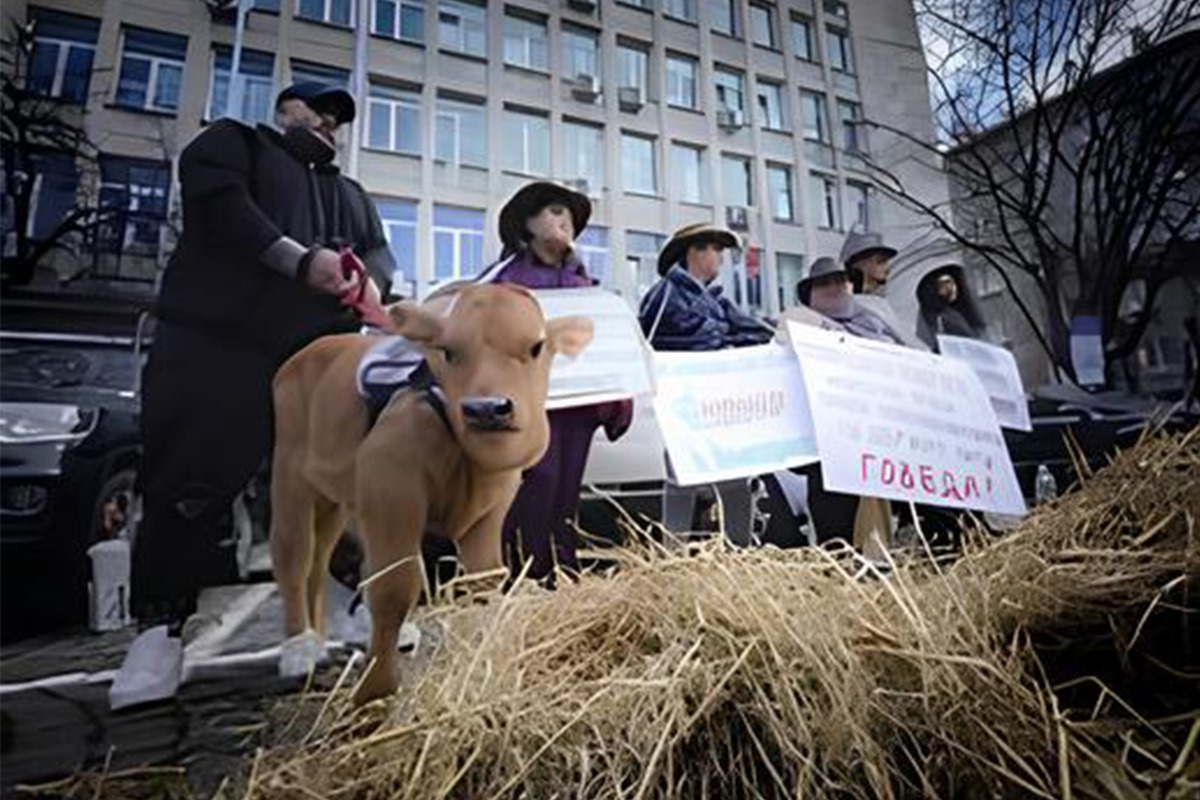The tables have turned. When India faced the deadly farmers’ riot about 3 years ago, as a violent reaction to the BJP-led government-promoted Farm Laws, the different European state leaders joined the chorus with the USA and Canada in criticizing New Delhi, the Indian government, and the PMO.
Looks like it is their time now to face the music in 2024.
The latest farmers’ flare-up in Europe has been going on for a month now and it appears to be a multi-state, protracted affair spread across France, Germany, Belgium, Romania, Lithuania, Italy, Poland, and Greece. What was initiated in Poland last year in response to the dumping of Ukrainian grains in EU markets now looks augmented and heavier with a host of other issues that the farmers have slowly started getting vocal about.
Although the protests have remained largely peaceful so far with road blockades and sundry burning of tyres or manure, and are nowhere close to the organized violence that was unleashed by the toolkit gang upon New Delhi a couple of years ago, the European governments – completely insulated from the ground reality – have been taken by surprise.
It is easy to make sense of the disbelief of these EU leaders. When a system mandates structural changes to facilitate monopoly and monopsony through a bunch of incompetent bureaucrats masquerading as political leaders, disbelief on their part is the natural outcome when the going gets tough.
The problems that face Europe and its farmers today are quite complex and tricky; they do not look like the kind that has an easy solution (provided the leadership wants a solution in the first place). They can be divided broadly into three parts:
THE STRUCTURAL PROBLEMS – Advent of Big Farming, and by extension, Big Retail is at the core. 20% of the Big Farmers have, over time, managed to hog 80% of the European farming subsidies based on the large tracts of farmlands that they own. They have, over the years, put 5.3 million farmers out of business either by acquiring their farms (around 40%) or by out-competing them. The ones that have managed to survive so far are gradually being manoeuvred from the government subsidies.
This Big Farming monopoly has been compounded by Big Retail monopsony. The dwindling number of European farmers, apart from finding it increasingly difficult to compete with the big farming brands, are being forced to lower their selling prices to the handful of available retailers. There has been an alarming drop of 10% in their profit in just one year (between 2023 and 2024) on account of a big retail monopsony that has forced them to lower their offer.
ENVIRONMENTAL PROBLEMS – Years of so-called advanced farming techniques have depleted the European farmlands and their productivity. Whether or not one believes in Global Warming, the fact is that there has been a substantial degradation of their farm biodiversity. Close to 50% of the farmland birds have disappeared during the last 40 years. That has impacted the entire ecosystem – from pollination to pest control. There has been a major level of soil erosion, along with the reduction of available water.
THE ‘WOKE’ BUREAUCRACY – Instead of dealing with this as a European problem and looking at ways to mitigate the same, the EU has clubbed the environmental issues facing European farmers as Global Warming. As a result they are trying to impose different caps and mandates on the farming community, like a) reduction of fertiliser use by 20%; b) reduction of livestock by 30%; c) reduction of ammonia emission between 45-90%; d) forcible acquisition of 4% of the farming land from farmers and so on, along with the usual mumbo-jumbo about ESG and green energy.
As far as addressing the other issue – the structural problem that the EU bureaucrats have created – the different governments are doubling down on the small farmers with probably an ambition to force them out of their livelihood. There are talks about the stopping of tax breaks for farmers on diesel that they need for their farming activities. This comes at a time when NATO has blown up both the Nord Stream and prospects of ‘cheap Russian gas’, and that has now left the EU with costly oil and gas imports from the USA.
Then there is Ukraine. Ukraine grains – which are chiefly meant for Asia and Africa – have not been able to find their way around the Black Sea because of the Russian blockade, so they mostly end up in the EU these days. The dumping of these cheap grains threatens to put European farmers out of business. The woke bureaucrats of the EU like the prospects of this. That’s why they are also trying to bring in Mercosur – a company that specializes in cheap farm imports from South America, probably to turn Europe into a permanent dumping ground of cheap grains and produce that feeds the monopsony.
It is a complex mess that is entirely the creation of the greed of American Big Brands and the complete ignorance of the European people (both leaders and common people). The rising populist leaders and parties have taken this opportunity to convince the Europeans – farmers included, about a better future should they come to power. However, there seems to be no one around who is capable of solving the joint problem of monopoly/monopsony and farmland degradation. Even if there were one, the bureaucratic structure that is the EU is too big to dismantle or be avoided, and too indifferent about the future.
Arindam Mukherjee is a geopolitical analyst. He tweets @heartland_ari










